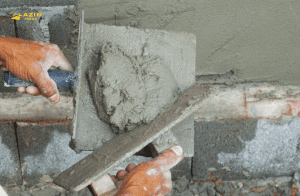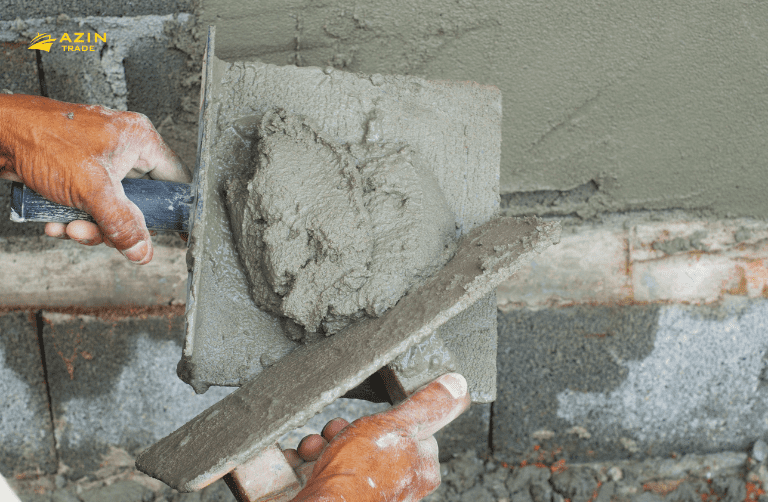
cement supplier
Introduction
Choosing the right cement supplier is crucial for any construction project, as the quality and reliability of the cement can significantly impact the structural integrity and longevity of the build. Whether you’re a contractor, builder, or project manager, understanding what to look for in a supplier can save you time, money, and headaches. This guide will delve into the key considerations when selecting a cement supplier and highlight the unique benefits of opting for an Iran cement supplier.
Table of Contents
Importance of Quality Cement
Key Factors to Consider When Choosing a Cement Supplier
Benefits of Using Iran Cement
Top Cement Suppliers in the Market
How to Evaluate Cement Quality
Cost Considerations and Budgeting
Case Studies: Successful Projects Using Iran Cement
Environmental and Sustainability Factors
Future Trends in the Cement Industry
Conclusion
Importance of Quality Cement
Quality cement is the backbone of any construction project. It binds other materials together, providing the necessary strength and durability to withstand various environmental and load-bearing conditions. A reliable cement supplier ensures that the cement meets all industry standards and specifications, which is essential for the safety and success of your project.
Key Factors to Consider When Choosing a Cement Supplier
When selecting a cement supplier, there are several factors you should consider:
Reputation and Reliability: Look for suppliers with a strong reputation for delivering high-quality cement consistently. Check reviews and ask for references from past clients.
Certification and Standards: Ensure the supplier adheres to local and international standards. Certification from recognized bodies can be a good indicator of quality.
Supply Chain and Logistics: A good cement supplier should have a robust supply chain to ensure timely delivery. This is especially critical for large-scale projects where delays can be costly.
Customer Service: Excellent customer service can make a significant difference. A supplier that provides support and addresses issues promptly can save you a lot of stress.
Price and Payment Terms: While cost is a crucial factor, it shoul dn’t compromise quality. Look for a supplier that offers competitive pricing with flexible payment terms.
Benefits of Using Iran Cement
Iran cement is renowned for its high quality and affordability. Here are some reasons why you should consider sourcing from Iran:
High-Quality Standards: Iran cement adheres to stringent manufacturing standards, ensuring superior quality.
Cost-Effective: Due to the abundance of raw materials and efficient production processes, Iran cement is often more affordable compared to other sources.
Variety: Iranian suppliers offer a wide range of cement types, suitable for different construction needs.
Export Expertise: Many Iranian cement suppliers have extensive experience in exporting, ensuring smooth and hassle-free transactions.
Top Cement Suppliers in the Market
Finding the right cement supplier involves researching and comparing different options. Some of the top suppliers known for their quality and reliability include:
LafargeHolcim: A global leader with a wide range of products.
CEMEX: Known for its innovative solutions and high-quality cement.
HeidelbergCement: Offers sustainable and eco-friendly options.
Iran Cement: Various suppliers in Iran provide excellent quality cement at competitive prices.
How to Evaluate Cement Quality
Evaluating the quality of cement involves several tests and checks:
Fineness: Determines the particle size of the cement. Finer cement provides greater strength.
Consistency: Ensures uniform quality in every batch.
Setting Time: Measures how long the cement takes to set. It should neither set too quickly nor too slowly.
Compressive Strength: A critical test to determine the load-bearing capacity of the cement.
Chemical Composition: Ensures the cement has the right balance of ingredients for optimal performance.
6. Cost Considerations and
Budgeting
Cost is a crucial factor when selecting a cement supplier, but it should be balanced with quality. Here are some tips to manage costs effectively:
Bulk Purchasing: Buying in bulk can often secure better pricing from the supplier.
Negotiation: Don’t hesitate to negotiate terms, especially for long-term projects or large orders.
Supplier Comparison: Get quotes from multiple suppliers to compare prices and terms.
Payment Terms: Look for suppliers who offer flexible payment options, which can help with cash flow management.
Case Studies: Successful Projects Using Iran Cement
Numerous successful construction projects have utilized Iran cement, showcasing its reliability and quality. Here are a few notable examples:
Tehran International Tower: The tallest skyscraper in Iran, this project relied heavily on Iran cement for its robust structural framework.
Imam Khomeini International Airport: This major infrastructure project used Iran cement for its durability and high-quality standards.
Residential Complexes in Isfahan: Many residential projects in Isfahan prefer Iran cement for its affordability and consistent quality.
These case studies highlight the dependability of Iran cement in both large-scale and residential projects, emphasizing its versatility and superior performance.
Environmental and Sustainability Factors
Sustainability is becoming increasingly important in the construction industry. When choosing a cement supplier, consider the following environmental factors:
Eco-friendly Manufacturing Processes: Look for suppliers that use energy-efficient methods and reduce carbon emissions.
Recycling and Waste Management: Suppliers who recycle waste materials and manage their byproducts responsibly are preferable.
Green Certifications: Certifications such as ISO 14001 indicate a commitment to environmental management.
Iran cement manufacturers are also making strides in sustainability, implementing practices that minimize environmental impact while maintaining high-quality standards.
Future Trends in the Cement Industry
The cement industry is evolving with advancements in technology and a growing focus on sustainability. Here are some trends to watch:
Green Cement: Development of eco-friendly cement that reduces carbon footprint.
Digitalization: Use of AI and IoT to optimize production processes and supply chain management.
Alternative Materials: Research into alternative raw materials to replace traditional cement components.
Smart Construction: Integration of smart technologies to improve the efficiency and sustainability of construction projects.
Staying informed about these trends can help you choose a forward-thinking cement supplier who is prepared for future challenges and opportunities.
Conclusion
Choosing the right cement supplier is critical for the success of any construction project. By considering factors such as quality, reliability, cost, and environmental impact, you can make an informed decision that ensures the longevity and safety of your build. Iran cement stands out as a top choice for its high standards, affordability, and variety. By partnering with a reputable cement supplier, you can achieve outstanding results and contribute to the advancement of sustainable construction practices.
Key Takeaways
The quality and reliability of the cement supplier you choose directly impact your construction project’s success.
Consider factors such as reputation, certification, supply chain, customer service, and cost when selecting a supplier.
Iran cement offers numerous benefits, including high quality, affordability, and a wide range of options.
Evaluate cement quality through tests like fineness, consistency, setting time, compressive strength, and chemical composition.
Sustainability and future trends in the cement industry are essential considerations for modern construction projects.
By following this comprehensive guide, construction professionals can make well-informed decisions and ensure they select the best cement supplier for their needs.




